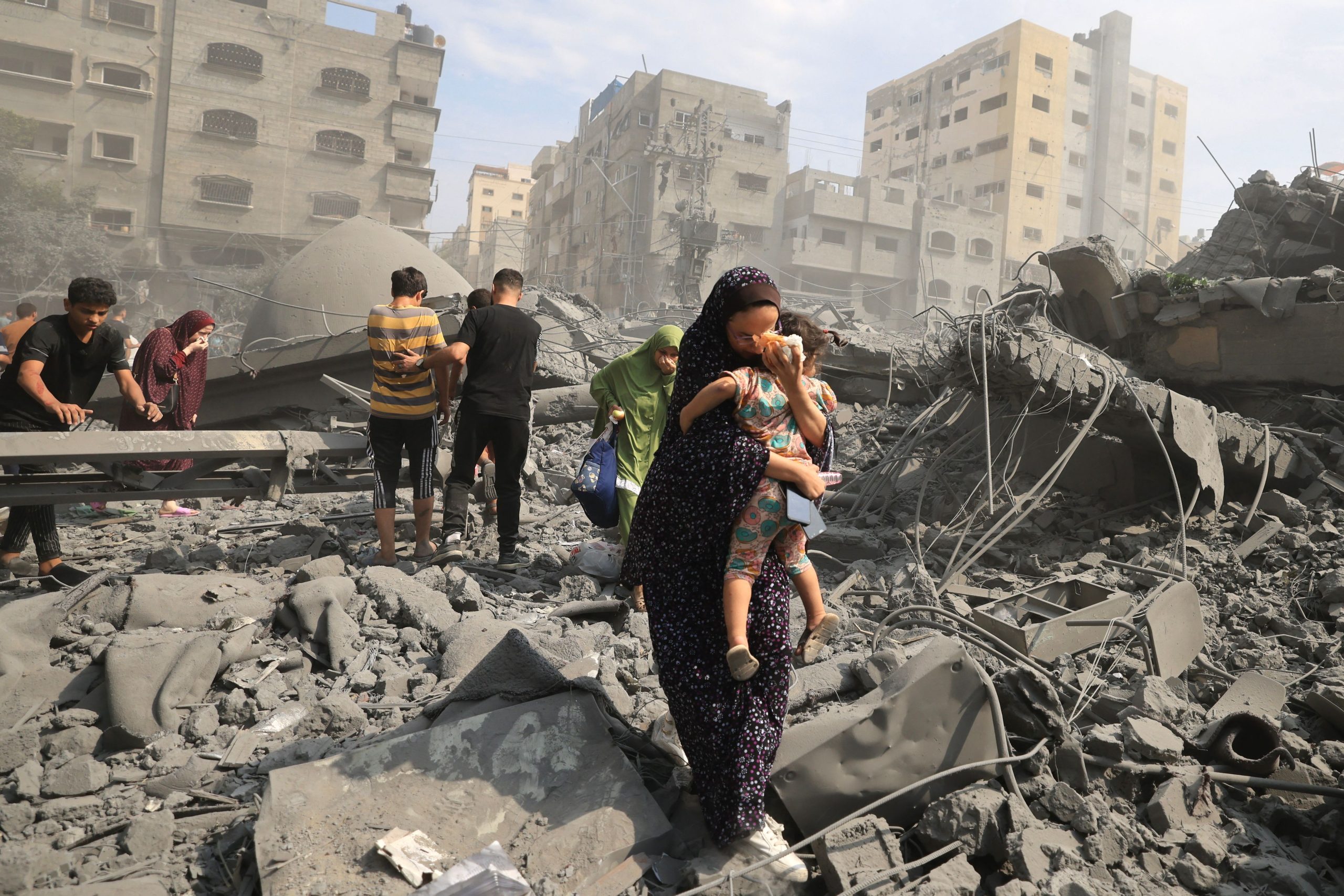The International Planned Parenthood Federation is shocked and heartbroken by the escalation of violence between Hamas and Israel since October 7. We mourn the lives lost, and we condemn the targeting and killing of all civilians. As a proud sexual and reproductive health, rights and justice organization, our unwavering commitment is to provide lifesaving care to women, girls and marginalized groups. We recognize these individuals experience heightened and disproportionate levels of sexual and gender-based violence during conflict, and we are committed to standing up and speaking out on any violations against international humanitarian law, including, but not limited to sexual and gender-based violence and conflict-related sexual violence.
In recognition of the disproportionate impact of this latest escalation of violence on those in Gaza due to Israel’s blockade and ongoing occupation, we call for unhindered humanitarian assistance and aid flows to all parts of Gaza. We call for the protection of civilians across Palestine and Israel, including access to medical services, in line with international humanitarian law. We echo calls for an immediate ceasefire between Israel and Hamas and a path to peace with justice.
We are working in collaboration with colleagues and partners on how best to serve those caught up in the violence, to ensure health workers are safe and able to provide sexual and reproductive health care without threat to life. In the coming days, weeks and months, our unwavering focus will be on providing humanitarian aid in the form of emergency sexual and reproductive healthcare that all people have the right to access.
This page will be regularly updated as the situation unfolds.
Banner image credit: Mahmud Hams/Getty
Our Member Association in Palestine, the Palestinian Family Planning and Protection Association (PFPPA)’s only health center in Gaza was destroyed on 8 October when an Israeli airstrike hit an adjacent building. Our staff in northern Gaza are sheltering from constant bombardments and are providing care to people in their community with limited supplies and resources, whilst under a total blockade of medical commodities. Click here to read more about the impact on Palestinian health workers, in their own words.
Our Member Association in Israel, Open Door Israel, closed four clinics that offer services to young people since the outbreak of fighting. Work has started again through telephone and digital counseling and they are receiving a number of calls each day. We strongly denounce the sexual and gender-based violence and conflict-related sexual violence reported in Israel and we stand ready to support our local colleagues and clients in Israel with any emergency sexual and reproductive healthcare services required.
Women and girls’ need for reproductive health care is not suspended in crises, and sexual and reproductive health, rights and justice remain essential. One-quarter of people affected by crises are women and girls aged 15-49. One in five women are likely to be pregnant and one and five of all deliveries will experience complications. In conflict settings there is also a heightened risk of early marriage, rape and sexual violence, unsafe abortions and unattended births. Transmission rates of STIs, including HIV, increase in emergencies.
The experiences of individuals with diverse sexual orientations and gender identities must not be discounted in conflict settings. We recognize that those coming from marginalized communities including those living with HIV/AIDS, LGBTQI+ communities and others are made even more vulnerable by the escalation of violence. Without proper data collection of sexual and reproductive health care needs, as well as protected characteristics including gender identity and sexual orientation, the unique impact on marginalized groups will not be properly identified, measured or addressed.
Click here to read more about how women and girls are affected in crises.
IPPF is working closely with our local partner, the Palestinian Family Planning and Protection Association (PFPPA), to establish the sexual and reproductive health needs of women and girls in both Gaza and the West Bank. Health workers on the ground are delivering services and care as best they can, with extremely minimal resources.
However, like most other humanitarian organizations, IPPF and PFPPA have been prevented from distributing sufficient aid to address the enormous scale of need amid Israel’s relentless bombardment on Gaza. A full and immediate ceasefire is the only viable solution to prevent thousands more deaths, including maternal and newborn deaths. We must be able to coordinate a broad aid operation into Gaza with our partners safely and peacefully.
Once it is safe for our teams to enter Gaza, our response will include mobile health services, including pre and postnatal care, contraceptive provisions, and referrals to healthcare facilities for safe deliveries.
In the meantime, we have launched an appeal to relocate our clinic to a safer area in order to continue delivering services. We will continue to establish the SRH needs of women and girls in Gaza and the West Bank and respond accordingly through mobile health services, referrals, and medicine provision.
IPPF is a providing a humanitarian response to our local member association, Open Door Israel, to support their emergency clinic in Tel Aviv and ensure the uninterrupted delivery of sexual and reproductive health services, including: counselling for sexual and gender-based violence, contraception (including emergency contraception) and abortion counselling. Open Door is also providing outreach and telehealth services to young people who have been displaced or who are unable to access in-person services due to safety concerns. Hotlines and online platforms for individuals to access accurate information on sexual and reproductive health, contraceptive methods, and sexual violence prevention are also being established.
Due to the 15 year blockade in Gaza, nearly 50% of the population in Palestine was in need of humanitarian assistance prior to this latest escalation of violence. There was already a dire lack of sufficient SRHR medical supplies, resources and equipment. 29.4% of Palestinian women have experienced violence, with 13.4% of women married under the age of 18.
The ongoing occupation and escalation of hostilities, together with a deepening financial crisis and a surge in commodity prices due to the impact of the war in Ukraine, have pushed people in Palestine into greater vulnerability. There are many sexual and reproductive health, rights and justice challenges including lack of key services, widespread misconceptions and stigma, and growing oppositional conservatism. COVID-19 impacts have resulted in increased domestic violence and reduced access for women and girls to shelter, support and health services.
Yes. Rape and sexual violence are a grave violation of human rights at any time, but if committed as part of an armed conflict, can constitute as a war crime. The scale of violence continuing to be committed against civilians is sadly, a choice that is being made minute by minute by men wielding disproportionate amounts of power and influence. Additional violence and perpetration will happen on the backs of women, girls and the most marginalized. They will need the sexual and reproductive health and rights care, services and support of IPPF now, and in the long-term.
IPPF unequivocally condemns rape and all other forms of conflict-related sexual violence. These crimes must be rigorously and independently investigated by the appropriate entities mandated to investigate violations of international humanitarian law and abuses of international human rights law. There are no justifications and no excuses for these crimes, regardless of who commits them or against whom they are committed.
As evidence emerges about the gendered nature of the violence against Israeli women at the hands of Hamas during the 7 October attacks, including rape and other forms of sexual violence, we acknowledge the importance of the investigative work being undertaken by the Independent Commission of Inquiry on the Occupation Palestinian Territory, including East Jerusalem, and Israel. This Commission was established by the Human Rights Council in 2021, and has opened its call for submissions on gender-based crimes since 7 October. We also support the submission of alleged crimes within the jurisdiction of the International Criminal Court via the OTPLink. The evidence collected through these processes forms a key component in achieving justice for survivors and their families, as well as for those that were killed in the 7 October attacks and for those that are being held hostage.
It is absolutely vital that conflict-related sexual violence is independently investigated in both Israel and Palestine – and in all global settings where it occurs.
IPPF works with over 145 Member Associations and Collaborative Partners around the world to advance sexual and reproductive health, rights and justice. Our work is wide-ranging, and includes comprehensive sex education, provision of contraceptives, safe abortion care, and maternal care. At the heart of our mandate is the provision of – and advocacy in support of – integrated healthcare to anyone who needs it regardless of race, gender, sex, income, and crucially, no matter how remote.
IPPF’s duty lies in providing lifesaving sexual and reproductive healthcare to women, girls and other marginalized people caught up in humanitarian crises.
Palestinians are systematically denied sexual and reproductive healthcare and rights. Our health system has been repeatedly targeted and depleted by the Israeli occupation, and the more it disintegrates, the more it will hinder the full realization of these rights for women and girls
Ammal Awadallah, Executive Director, PFPPA Tweet
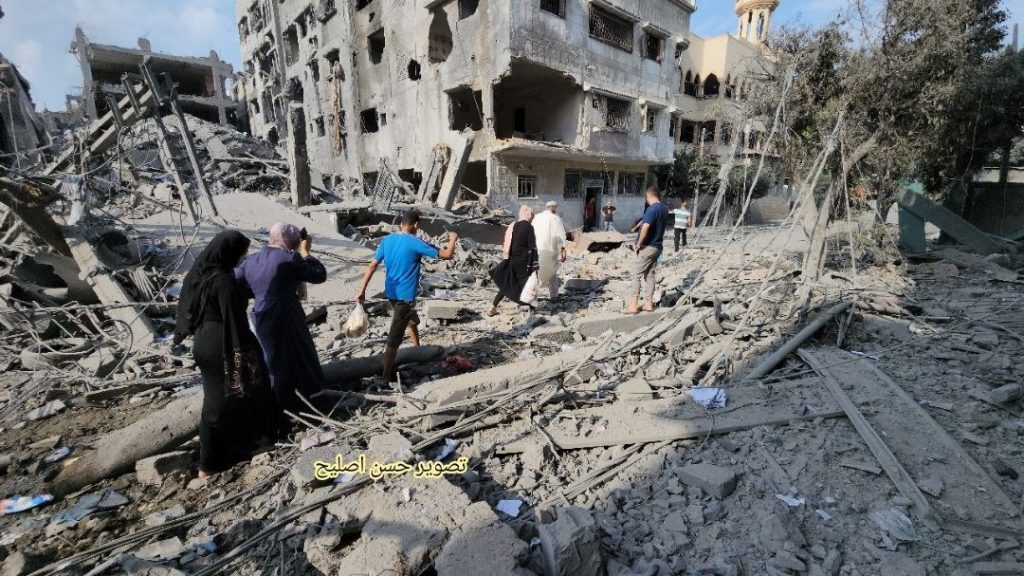
As a health worker and a Palestinian woman, I have been living in constant fear for the safety and livelihood of me and my family. At the same time, I am not able to leave behind my commitment to providing women with health services and information.
Wafa Abu Hasheish, Health worker, PFPPA Tweet
Press Releases and Blogs
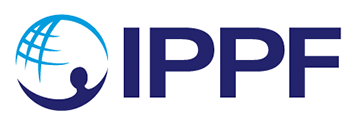
Press Release: Gaza nine months on, pregnant women carry the burden of conflict
9 July 2024 – Nine months on since the start of the Israeli aggression in Gaza, maternal healthcare is almost decimated. Pregnant, postpartum, and breastfeeding women in Gaza are facing serious health consequences. Miscarriages have risen at least 300% since October last year. One of our own health workers from the Palestinian Family Planning and Protection Association (PFPPA) recently lost her pregnancy due to the stress of the attacks. Read our Press Statement here.

IPPF Statement on Israel’s offensive in Rafah, Gaza
30 May 2024 – Another horrendous attack by Israel on displacement camps in Rafah, Gaza, has occurred this week, ignoring the orders of the UN’s top court, the International Court of Justice (ICJ), to halt its offensive. Thousands of innocent people are sheltering for their lives in this area, having been told to move there for their safety by Israeli authorities. Instead, they were attacked as they slept, with men, women and children facing nightmarish deaths. Read more
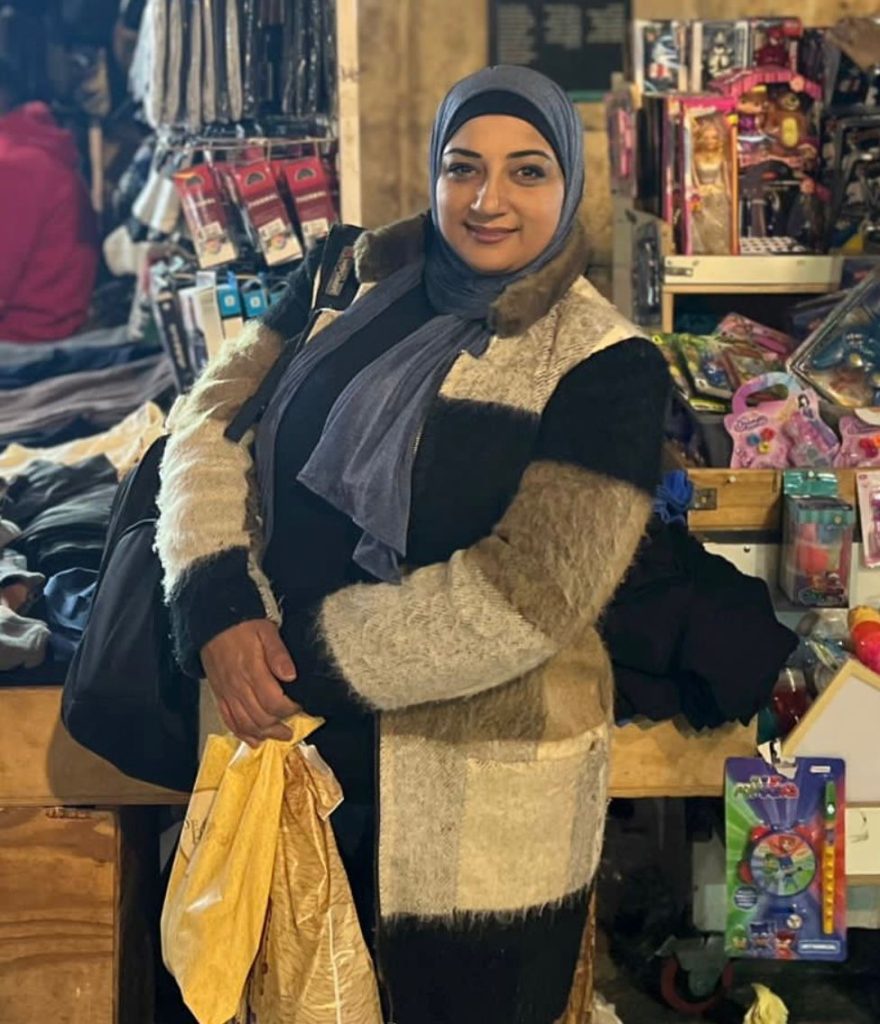
Gaza through the eyes of our healthworker, Wafa
30 December 2023 – Wafa Abu Hasheish is a health worker at the Palestinian Family Planning and Protection Association (PFPPA), an IPPF Member Association. She lives in Gaza with her husband and her three children. Wafa has been providing sexual and reproductive health care to women and girls from the various places she has been forced to find shelter in the northern and southern parts of the Strip. Read more
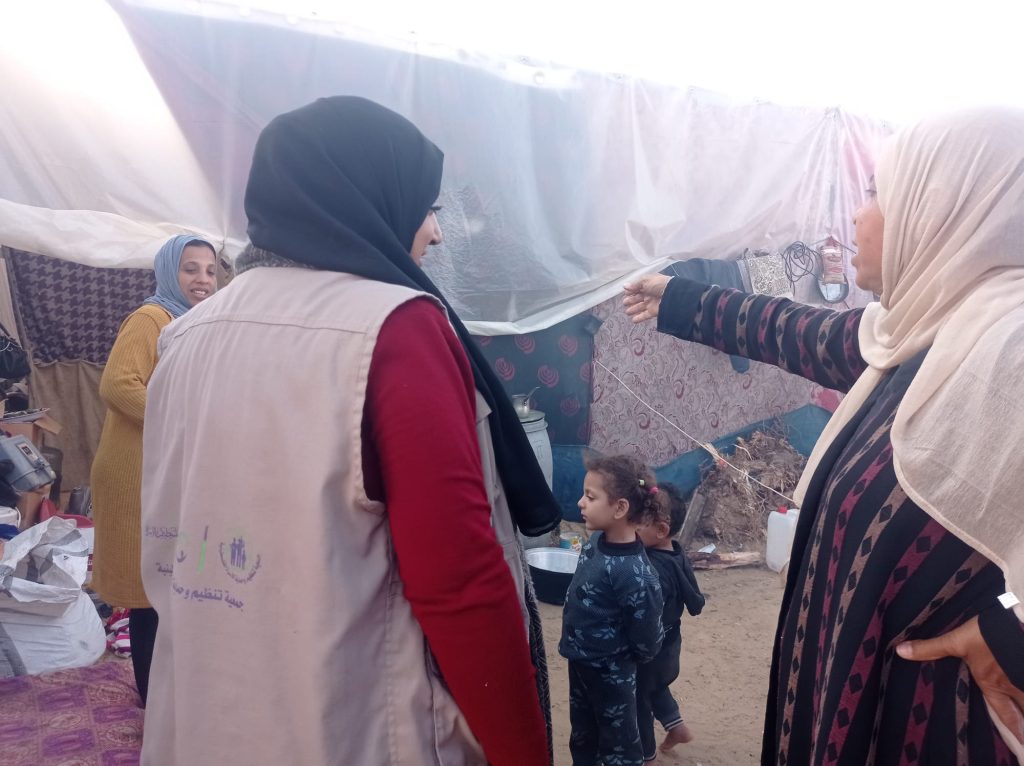
No freedom without reproductive freedom for Palestinian women
8 December 2023 – Palestine is a litmus test to our collective commitment to human rights, and to the sexual and reproductive rights of all women and girls, writes Lina AbiRafeh for IPPF. Read more
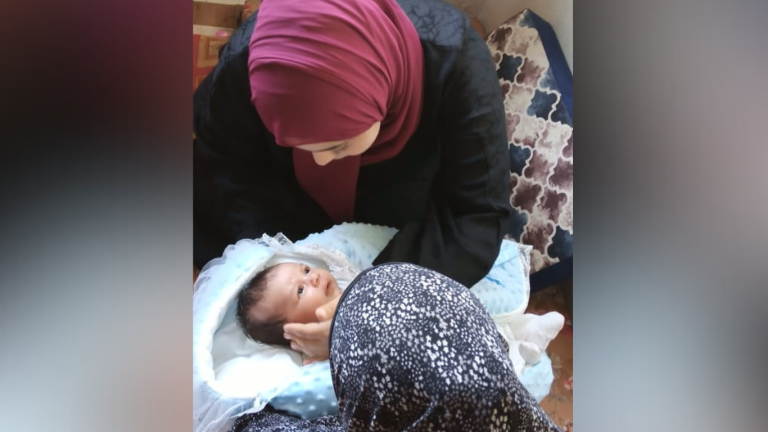
With the forced closure of hospitals, midwives are a lifeline for pregnant women in Gaza
15 November 2023 – With the forced closure of Gaza’s largest hospital, Al Quds, due to the lack of fuel and incessant Israeli bombardment, and the recent storming of al-Shifa Hospital by Israeli forces, midwives are a lifeline for the estimated 180 women who are giving birth each day. Read More

30 Days Too Many for Women and Girls in Gaza
7 November 2023 – Today marks one month since Hamas launched its attack on civilians that triggered Israel’s declaration of an unprecedented war in the Gaza Strip, and a subsequent humanitarian catastrophe. Read More
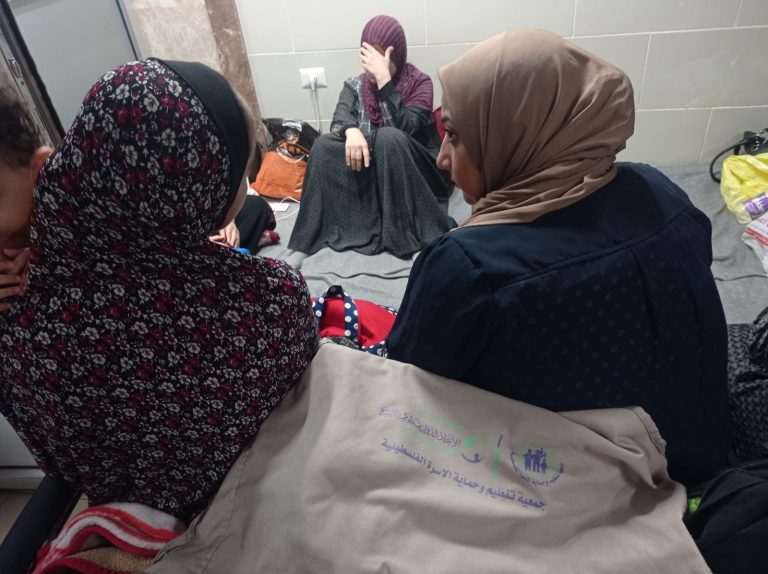
Women and girls sheltering for their lives in Gaza face dire lack of SRH supplies, disease outbreak
30 October 2023 – Shelter conditions in Gaza for the estimated 1 million internally displaced people have become dire, with women and girls reporting a severe lack of menstrual hygiene products, cases of sexually transmitted diseases and urinary tract infections with little to no medical treatment available in the severely overcrowded shelters. Read More
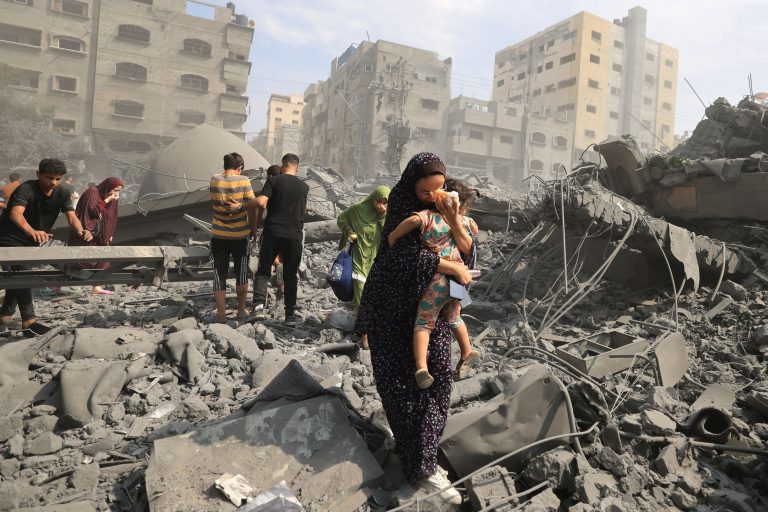
High risks of miscarriage, death for many pregnant women forced to evacuate from northern Gaza
16 October 2023 – An estimated 19,000 pregnant women are among the 1.1 million residents forced to flee with no safe place to give birth. Read More
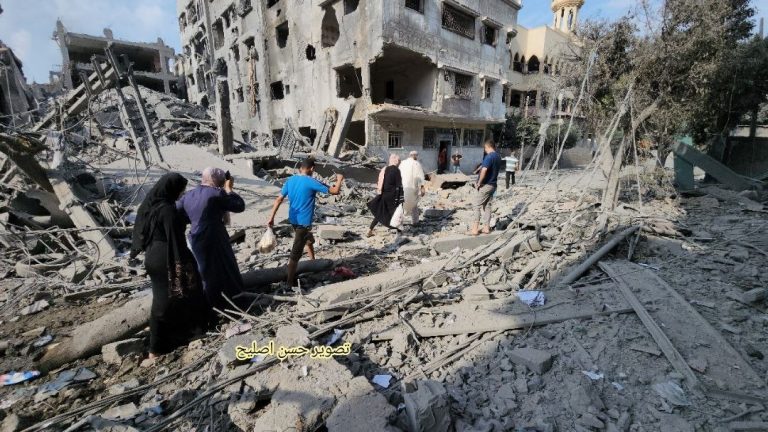
Over 37,000 pregnant women at risk of life-threatening complications in Gaza
12 October 2023 – “I can’t stress enough how dire the situation is and how desperately we need humanitarian aid to be allowed into Gaza,” said Ammal Awadallah, Executive Director of PFPPA. Read More
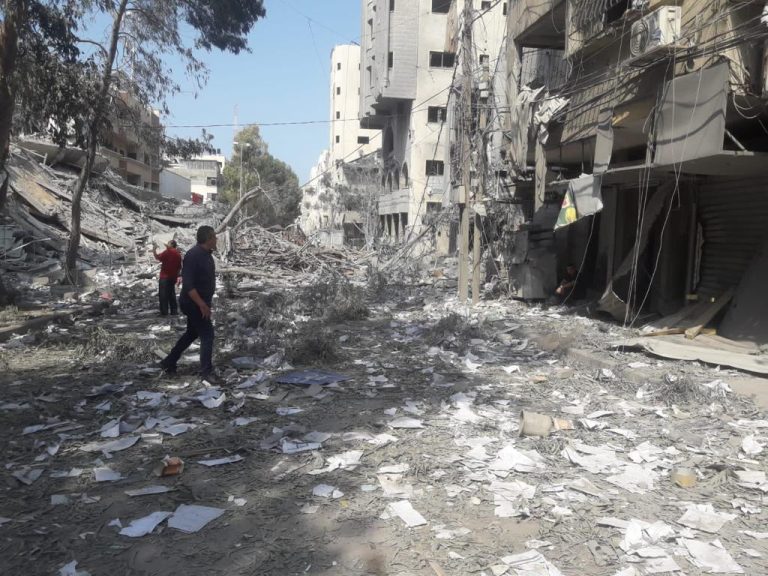
IPPF Statement on the Escalating Violence in Gaza
9 October 2023 – Statement from IPPF Director General Alvaro Bermejo and Executive Director of the Palestinian Family Planning and Protection Association, Ammal Awadallah. Read More
Media Coverage
We won’t have true reproductive justice until Palestine is free
Truthout
Birth and death intertwined in Gaza Strip
Human Rights Watch
This is why what’s happening in Gaza is a reproductive justice issue too
Reckon News
Pregnant women in Gaza face dangerous births on their own
Women in Gaza Are Experiencing Miscarriages as Birth Facilities Are ‘Rapidly Dwindling’
Jezebel
Pregnant Women in Labor in Gaza are ‘Unable’ to Get Care, says Palestinian NGO head
Jezebel
In Israel-Hamas War, Women Of Gaza Are On Their Own
Outlook India
Pregnant Gazans are Miscarrying and Struggling to Access Care
Mother Jones
About 150 women are giving birth each day in Gaza with no clean water or electricity
NPR
A note on Misinformation
On the PFPPA
The Palestinian Family Planning and Protection Association (PFPPA) and Planned Parenthood Foundation of America (PPFA) are both member associations of the International Planned Parenthood Federation (IPPF), but they are entirely separate legal entities. PPFA does not work in Gaza or elsewhere in Palestine.
On abortion
Since 2005, PFPPA, has had “Abortion” within its strategic plan and has been working on the issue within their national and legal context. Since 2014, PFPPA received two grants from the Safe Abortion Action Fund (SAAF), which is funded by IPPF, and they have been working on increasing provision of abortion-related services via a harm reduction model, which focuses on pre- and post-abortion counselling and consultation only. At the same time, PFPPA has been advocating at community and national levels for changes to the abortion law.
PFPPA abides by Palestinian law where currently, doctors are permitted to perform abortions when pregnancy endangers a person’s life. An abortion can also be performed if fetal impairment is detected and if both parents consent. In cases of treatment for incomplete abortion, referrals are provided according to the Palestinian Ministry of Health protocol and within the national and legal context.
On pregnancy statistics
On 12 October 2023, we reported that there were an estimated 37,000 pregnant women in Gaza, which was calculated using population estimates from the MISP calculator – a tool that helps coordinators and program managers determine affected population demographics for advocacy, fundraising and programming. This statistic has since been updated to an estimated 50,000 pregnant women in Gaza, with 5,500 expected to deliver in the next month, according to the most recent available data from the UNFPA.







